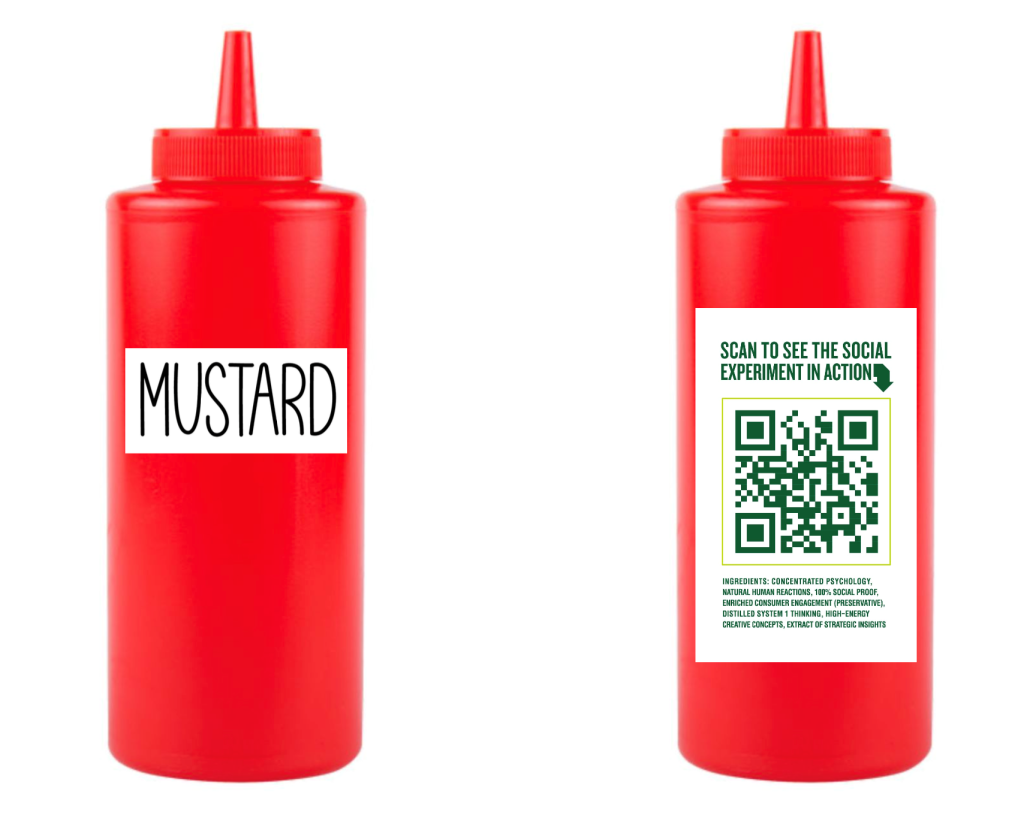Social research study takes virtual “field trip” inside the minds of consumers by demonstrating four key psychological principles
Intermark Group, the nation’s largest psychology-driven marketing agency, has released a new experiential study based on a composite of academic journals and research by Kurtin Lewin, Ivan Pavlov, and more. Through real-world empirical social experiments, the study—titled “Ad Psych Field Trips”—explores the link between foundational behavioral science principles and today’s consumer-buying decisions.
Intermark’s experiential activations were conducted at a popular event with approximately 10,000 guests. Using free offerings accompanied by hidden cognitive cues, participants were invited to visit a snack stand, make food selections, and then discuss their choices. Videos showcase how psychology principles—priming, auditory triggers, conditioning, and descriptive language— influenced which brands people selected.
The full study and awareness campaign includes a landing page, email, organic social, PR, and direct mailers distributed to key members of the consumer packaged goods and food industry.
“Our ‘Ad Psych Field Trips’ series is intended to provide a more accessible demonstration of how marketing applies established behavioral principles and concepts that are widely recognized by academic and science influencers,” said Dr. James McFarland, Intermark Group people scientist.

One video unpacks classical conditioning via the Stroop Effect, where unconscious associations interfere with how consumers process their environments.
Unwitting subjects were offered hot dogs and instructed to add their own condiments. However, the contents of traditional ketchup and mustard bottles were switched, with the red bottles marked as mustard and the yellow bottles reading ketchup. Despite being correctly labeled, subjects were surprised to squeeze the bottles and see “incorrect” condiments emerge. The audience’s reactions were due to the brain’s automatic processing of stimuli (a red bottle), which interfered with conscious, intentional processing of a conflicting stimulus (the mustard label and bottle contents).
A second multisensory experiment focused on auditory triggers. Subjects were offered free churros and Bavarian pretzels, while Mexican or German music played in the background. The musical selection impacted their food choices.
“These experiments underscore the potency of sensory heuristics that are often overlooked by marketers seeking to elevate the persuasiveness of their communications,” said Jake McKenzie, Intermark Group CEO. “There is more than 120 years of research on how consumers think and act. Intermark understands that the behavioral sciences are the next great frontier for driving better marketing outcomes. In 2024, we’re seeing more and more CMOs with a passion for applying psychology to ensure the success of their brands.”
Intermark facilitated a similar study in 2021, focusing on soda and demonstrating how the psychological principles of social proof, framing, and anchoring challenged consumers’ social norms and unconscious product preferences. The 2024 study and shareable video campaign takes the insights a step further.
Viewers can watch the full social experiment in action at https://intermarkgroup.com/psychfieldtrip/.
Source: Intermark Group

You must be logged in to post a comment Login